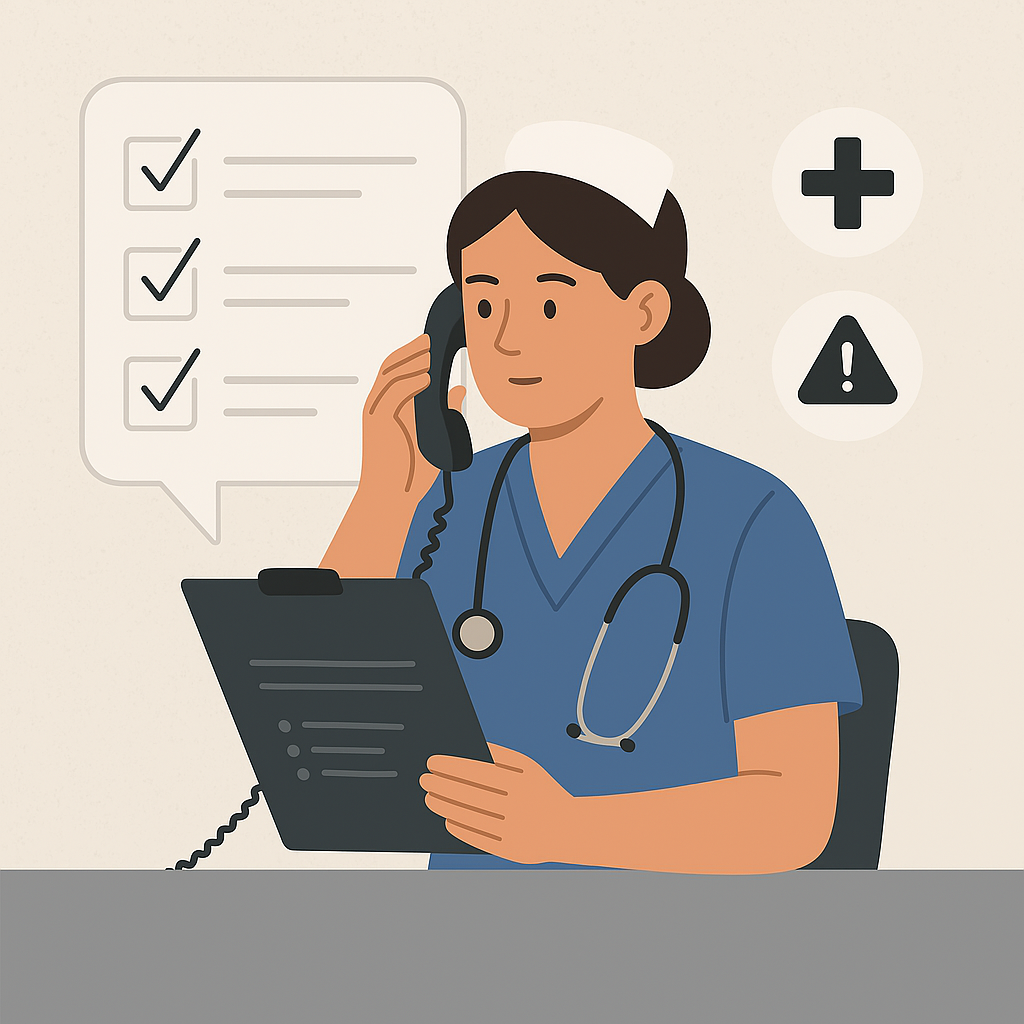Book Appointment Now

The Role of Nurse Triage in Providing Quality Care: A Vital Aspect of Healthcare Delivery
The Role of Nurse Triage in Providing Quality Care: A Vital Aspect of Healthcare Delivery
In today’s fast-paced healthcare environment, timely access to care is crucial for patient safety and well-being. Nurse triage, a process where registered nurses assess patients’ conditions and determine the urgency of care needed, plays a vital role in ensuring patients receive the right care at the right time.
What is Nurse Triage?
Nurse triage involves evaluating a patient’s medical symptoms and deciding the appropriate level of care. It typically occurs in settings such as urgent care, emergency departments, and telehealth services. Triage nurses use established protocols, such as the Schmitt Thompson protocols, to assess the severity of conditions and direct patients to the most appropriate healthcare provider or intervention.
The triage process is often the first point of contact for patients seeking care, especially in non-emergency settings, and it helps ensure that patients are directed to the proper resources. Whether it’s a phone call to a nurse advice line, an in-person assessment in a busy emergency room, or a virtual encounter in telehealth, triage nurses are often the first line of defense in ensuring the safety and efficiency of the care process.
The Importance of Nurse Triage
- Efficient Use of Resources: One of the primary benefits of nurse triage is ensuring that healthcare resources are used efficiently. By assessing the severity of patient symptoms, triage nurses can prevent overcrowding in emergency rooms or urgent care centers by directing patients with minor conditions to appropriate care, such as a primary care physician or virtual care options. This helps optimize the use of medical staff and facilities.
- Quick Identification of Serious Conditions: Nurse triage helps quickly identify patients with life-threatening or time-sensitive conditions that require immediate care. By using established protocols, triage nurses can accurately assess when a patient needs emergency intervention, which could make the difference between life and death.
- Cost Savings: Efficient triage reduces unnecessary visits to emergency rooms, which can lead to significant cost savings for both healthcare systems and patients. By directing patients with minor complaints to less expensive care options, such as telehealth consultations or urgent care centers, healthcare organizations can reduce strain on their resources and offer more affordable alternatives to patients.
- Improved Patient Satisfaction: Nurse triage enhances patient satisfaction by providing timely care that addresses their concerns. Whether through immediate resolution of minor issues or swift escalation for more serious conditions, triage nurses ensure that patients are given the attention they need quickly, reducing wait times and frustration.
- Telehealth and Virtual Care: In the growing field of telehealth, nurse triage is especially critical. With the increasing adoption of virtual care, triage nurses in telehealth settings can perform assessments remotely, offer advice, and determine the best course of action for patients. This extends care to patients who may not otherwise have access to in-person healthcare and reduces the burden on in-person facilities.
Skills and Expertise of a Triage Nurse
Triage nurses require a unique set of skills to be effective in their roles. These include:
- Critical Thinking: Triage nurses must assess complex symptoms quickly and accurately. This requires the ability to prioritize patient needs based on severity, urgency, and available resources.
- Communication Skills: Triage nurses need to communicate effectively with patients, other healthcare providers, and support staff. Their ability to clearly explain symptoms, treatment options, and instructions plays a crucial role in patient care.
- Knowledge of Protocols: Triage nurses are well-versed in established protocols like the Schmitt Thompson protocols. These evidence-based guidelines help ensure that triage decisions are made systematically and safely.
- Compassionate Care: As the first point of contact for many patients, triage nurses must provide empathetic, compassionate care, reassuring patients and addressing their concerns.
The Future of Nurse Triage
With the increasing demand for healthcare services and the rise of telehealth, the role of nurse triage is expected to continue to grow. The integration of advanced technologies, such as artificial intelligence and digital health tools, may enhance the triage process by providing real-time data analysis, symptom tracking, and improved decision-making capabilities.
However, the human element of nurse triage—critical thinking, compassionate care, and the ability to assess complex situations—remains irreplaceable. Nurses will continue to be at the heart of triage, guiding patients through their healthcare journey with expertise, efficiency, and empathy.
Conclusion
Nurse triage is a cornerstone of modern healthcare systems, playing a crucial role in ensuring that patients receive appropriate care while optimizing resources and improving patient outcomes. Whether in-person, by phone, or through telehealth, triage nurses provide invaluable expertise that shapes the care process from the moment a patient reaches out. By leveraging clinical skills, established protocols, and compassionate communication, nurse triage ensures that patients receive the right care at the right time—every time.
